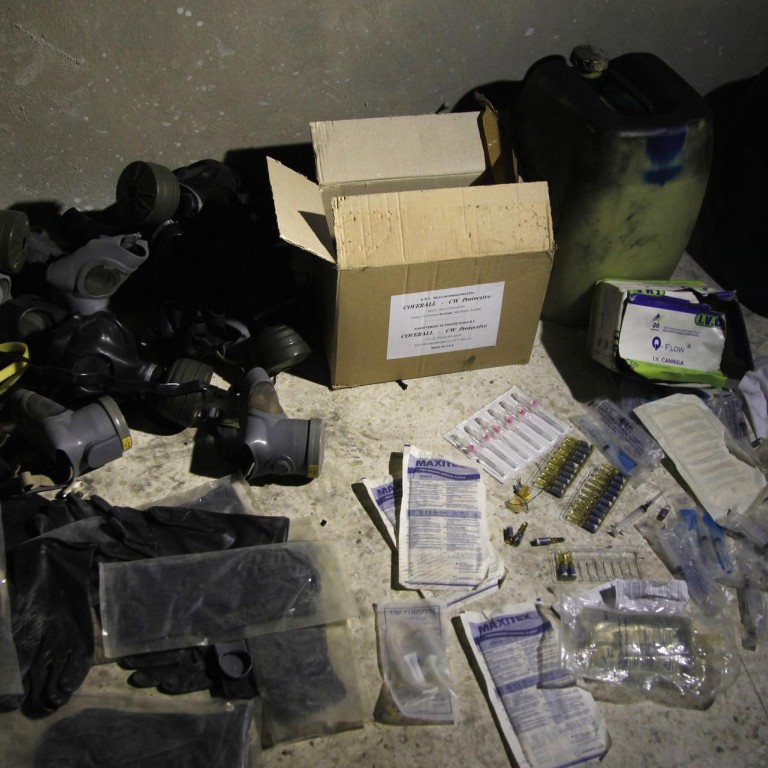
US says Syria's UN move too late
Inspectors granted access to gas-attack site as Iran, Russia warn against military intervention
Syria agreed to allow the United Nations to inspect the site of a suspected chemical weapons attack from today but a US official said it was already too late.
This comes as Syria warned that any US military action would "create a ball of fire" in the Middle East and Iran warned Washington against any intervention.
The UN said Damascus had agreed to a ceasefire while a UN team of experts are at the site for inspections. But there were increasing signs that the US and its allies were considering taking action, a year after President Barack Obama said the use of chemical weapons was a "red line" that would incur serious consequences.
Speaking after Syria's decision to allow the UN team to the site, a senior US official said there was very little doubt that the Syrian government had used a chemical weapon against civilians last Wednesday and that Washington was still weighing how to respond.
Video: Syria regime, rebels trade accusations over chemicals
The official also said any decision to grant access to the UN inspectors would be "too late to be credible" because evidence had been corrupted by government shelling and other actions.
Syria's information minister Omran Zoabi said any US military action would "create a ball of fire that will inflame the Middle East".
He also said Damascus had evidence that chemical weapons were used by rebels fighting to topple President Bashar al-Assad, not by his government.
Syrian state television ran footage of "barrels filled with highly dangerous toxic and chemical agents" as well as gas masks, saying they were only a small sample of what had been unearthed in overrunning rebel positions. The state broadcaster said several soldiers had suffered poison gas inhalation and some were in critical condition.
Western countries say they believe the rebels do not have access to poison gas.
Syria's opposition says more than 1,300 people died when regime forces unleashed chemical weapons against rebel-held towns east and southwest of Damascus last Wednesday, while Doctors Without Borders said 355 people had died of "neuro-toxic" symptoms.
Russia welcomed Damascus' offer to allow UN inspectors access to the site and warned the West that an Iraq scenario in Syria would be a "tragic mistake".
Assad's closest ally Iran, repeating Obama's own rhetoric, said the US should not cross a "red line" by attacking Syria.
Western nations say preliminary evidence indicates that Assad's regime was behind the attack. Yesterday, French President Francois Hollande said "a body of evidence" indicated that the attack was chemical in nature, and that "everything led to the belief that the Syrian regime was responsible for this unspeakable act".
Obama spoke by phone with British Prime Minister David Cameron, and the two leaders reiterated that significant use of chemical weapons "would merit a serious response from the international community".
Defence Secretary Chuck Hagel said the US military is ready to act if Obama orders a strike.
In Israel, President Shimon Peres called for international efforts to "take out" chemical weapons in Syria as Prime Minister Benjamin Netanyahu said Israel would pull the trigger if needed to protect its people.
US, UK and French forces near Syria

The aircraft carrier USS Harry S Truman, by far the most powerful warship in the region, left the Mediterranean last weekend, passing through the Suez Canal into the Red Sea.
Defence experts say the carrier could still strike Syria from south of Suez. As well as the strike aircraft carried by the Truman, several of her escort ships are also capable of firing Tomahawk land-attack cruise missiles.
Since earlier this year, the United States has also had F-16 jets in Jordan, where they remained after a major military exercise this year at the request of the Jordanian government. It also has a major air base at Incirlik in Turkey that could house multiple aircraft as part of a wider military campaign.
Having completed a major refit in the past few weeks, the French nuclear aircraft carrier Charles de Gaulle is operational. Officials say she remains for now in the Mediterranean port of Toulon.
France also has Rafale and Mirage jets based in the United Arab Emirates that could potentially reach Syria.
Without any operational aircraft carriers, Britain would likely depend on its cruise missile-carrying Trafalgar and Astute class attack submarines if it wished to join a US-led campaign.
Defence sources say the Royal Navy has kept at least one of its submarines in the Mediterranean in recent months partly for that reason.
Britain does not have any combat aircraft in the region, although they could theoretically operate from UK sovereign bases in Cyprus.

